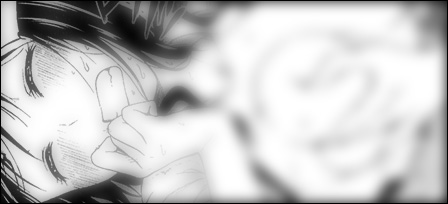From the New World, vols 1-4
I don't read science fiction criticism, but I'm certain I can't be the first to notice that one of the key features of utopian societies is that in the end they always always always wind up being dystopias. The perfection of society seems to be presented ubiquitously across the genre as nothing so much as veneer. Regardless their ideological differences, the humanists who explore our species' potential through speculative writing find themselves warm bedfellows with Jesus of Nazareth when contemplating the state of the polished and good. Whitewashed sepulchers. Shiny happy edifices that look delightful and inviting but only serve to contain corruption, death, and rot. If you find in science fiction a perfect society, it is a certainty that this society will soon be unveiled as hopelessly broken—and may even begin functioning as The Antagonist.
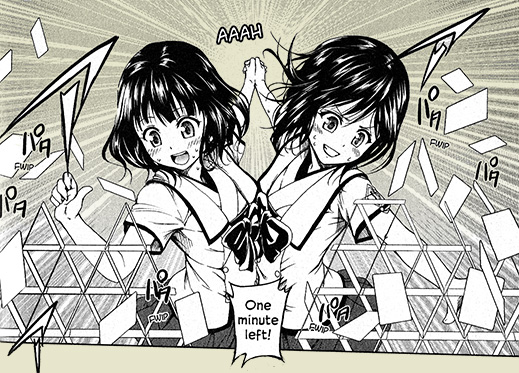
And these authors may even probably be onto something. Call it a generational thing if you like (having been born in the early '70s, I sit in the tail end of Generation X, a touch prior the emergence of Gen Y) or the product of a life spent being betrayed by idealism and trust, but I find myself rather affectionate toward the brand of cynicism that cannot believe in a utopian civilization. As much as dystopia resonates with me, a dystopia under guise of utopia feels even more at home in my sense of What Is.
So when something like From the New World comes around, it's almost a certainty that I will bear it a charitable disposition. The story begins a millennium from today, and with the twenty-first-century emergence of humans with telekinetic powers, society has evolved in vastly different directions from its current trajectory. From the New World follows five children who discover for themselves the nature of the idyllic society they've been born into. Kishi's story functions as a kind of soft examination of power structures, oppression, and the question of reparations, and so might resonate well with an attentive audience who is concerned with the ethics of systemic structures and the normal citizens who unknowingly participate in those systems.
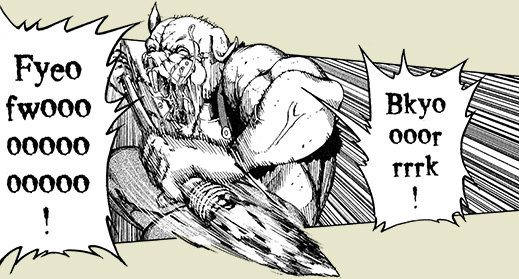
As I was waiting for a volume of the series to arrive in the mail to bring my collection up to speed (there are so far four available volumes), I poked around for information on the book—anything to provide a little colour for the review I hoped to soon write.11I hadn't yet read any of the manga, wanting to wait for all the books to come in. I discovered that there was a well-regarded anime series adapting the same novel. Intrigued, I decided to check it out on Crunchyroll.
It was amazing. I had only planned to view an episode or two. I devoured the entirety of the show (25 episodes) in under a week. It may actually be my favourite anime series of all time. The experience of watching this world unfold in terror and hope was wonderful. I never knew what was coming and was always on my toes. The show was lovely and fascinating and philosophically rich. Though completely caught off-guard, I became an ardent fan. I couldn't wait to get ahold of the manga version of the title.
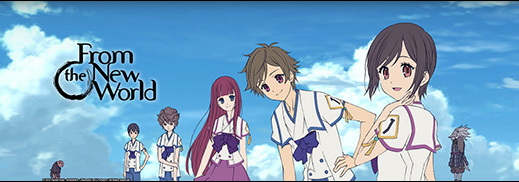 This show is so good you guys.
This show is so good you guys.
Adaptation when done well is amazing and inspiring, mostly because you don't expect it. Taking an existing work that is worthy of recapitulation and then reinventing it in a worthy manner for a new medium (and possibly for a new audience) is a brutally difficult endeavor. At almost its best, an adaptation will only ever reach the heights of Acceptable or Not Bad. Only on the rarest occasion will the reimagining meet the demands of the source and continue on to become something shockingly good. Films like Fight Club and Rashomon. The theatrical adaptation of Wicked. Murakami's expansion of his own earlier short story "Wind-Up Bird and Tuesday's Women." Comics like 5 Centimeters Per Second and Brandon Graham's Prophet. Adaptations of this caliber are a scarcity. We can hold hope that we might be privileged to run into them in the future, but they can hardly be an expectation.
Conversely, on the other side, truly terrible transliterations of existing works—while not exactly rare—are still uncommon enough to defy prediction. When Marvel announces that they're going to be doing a Jessica Jones adaptation on Netflix, nobody's going to expect a terrible show. Fans of the Transformers probably didn't expect anything close to cinematic gold from Michael Bay's translation of the toy line in the 2000s, but few probably expected it to be as cataclysmically terrible as it was.
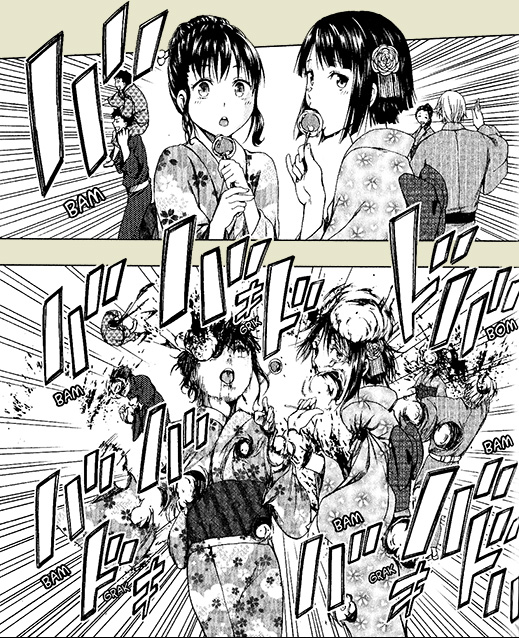 This extermination of a couple kids is really the least of the book's graphic violence and horror. Tip of Iceberg stuff here.
This extermination of a couple kids is really the least of the book's graphic violence and horror. Tip of Iceberg stuff here.
Though most adaptations sit safely in the mixed-bag territory comprised of so-so and alright and everything between, avoiding the extremities of the Great and the Awful, From the New World doesn't pussyfoot around. The manga realization of Yusuke Kishi's novel is blatantly bad. Its missteps are numerous and sometime egregious. And unfortunately for the series, its problems are only magnified by the glories of the anime adaptation.
On the more tolerable side, the art and storytelling are rather weak. The way the narrative unfolds is a jittery, lurching affair. The dialogue is uninspired and plain, and features characters communicating in impossibly expositional ways. For example, this painful series of panels designed to spell out exactly each character's role in the group (reads right to left in the Japanese form):
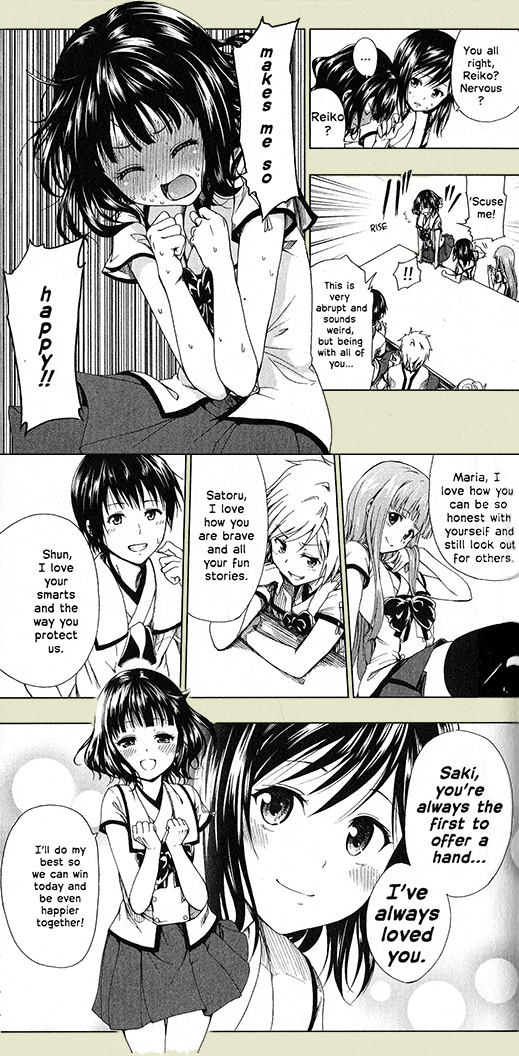
The writing is bad for the duration. A small few pages later, Saki narrates:
I would discover, amidst the endless despair and sorrow, why adults feared children so. That morning, we set out for summer camp, which triggered it all. Our fateful boats sailed on towards that day when so much would be reduced to ash...
Fateful boats? This is the writing of a fourteen year old.
While there are obviously big ideas at play, the manga adaptation does its best to downplay everything interesting there and instead focuses on a pandering sort of demographic-driven tawdriness. But maybe I'm just not the right audience for the book—I probably would have loved this manga when I was twelve.22Not that my mom would have allowed me to read a book with this much smut in it when I was twelve.
Where the comics version of From the New World most deeply offends is in its depiction of its female protagonists. The story is told not just from a perspective lodged deeply from within the male gaze; instead it's founded somewhere in the fractured imagination of some young heterosexual male who wants desperately to turn females into animate-though-barely-sentient sexual objects but lacks any real understanding of the anatomy or texture of the human person. At the start, these kids are about twelve years old,33I can't actually remember how old they are in the manga. In the anime, they start out at somewhere around twelve years old. but the book sallies forth with rather forthright nude lesbian scenes marked by iron-gripped groping and saliva streams and sweaty sweaty sweatiness. It would be comical if it wasn't so repulsive. Any female character under age twenty is obliged to constant camel toe. Series lead Saki and support characters are given breasts that must be filled with some impossible substance. I'm reminded of Forty-Year-Old Virgin when Steve Carrell describes a woman's breasts as being bags of sand. Here, the creator depicts them as something like tremendous waterballoons filled with grape jelly. Fingers dig in and realities collapse.44It's possible/likely that artist Toru Oikawa is actually an elder god, here to drive us to madness by the impossibilities of his spacetime absurdities. Like so (click the below blurred image to see what's wat in the realm of space horror—I don't actually recommend this course of action):
Like probably every American reviewer of this book, I'm going on record to explain that I'm no shrinking violet when it comes to sex scenes in the narratives I consume and engage. Utsubora (also published by Vertical) is fraught with steamy, sexy scenes that might even be more explicit, but they're artfully accomplished and serve a purpose beyond mere titillation (even if the author still intends to arouse her reader) and I pretty highly recommend the book. Craig Thompson, in Blankets, depicts his avatar's first sexual experience with a girl and the scene is beautiful, wonderful, and essential—and the book would be lesser for its absence. So it's not the presence of sex that diminishes the book. It's not even the underage nature of the participants—Blankets too features sexual contact between minors.
The problem is that Saki, Maria, and Reiko are depicted as gratuitously sexualized objects for wholly prurient reasons. There are narrative reasons that they might be engaged in lesbian pursuits, but there is no reason for the character and quality of these scenes beyond giving teens weird jerk-off material. The producers are also certain to apportion out these scenes across the series to give readers at least one solid lesbian sex scene per volume—even if there aren't enough female characters around to make it happen (pro-tip: thank goodness for flashbacks and dream sequences!). The end result is a book that makes DC Comics look like a hard-bitten bastion of feminist activism. I was embarrassed to be reading this book. I was embarrassed to be seen reading these in public. I was embarrassed to hand these to my wife to read for a second opinion uncoloured by a fervent admiration for the anime adaptation. I was embarrassed for the manga's creators. And I was embarrassed for the subculture whose tastes make something like this book a marketable choice.
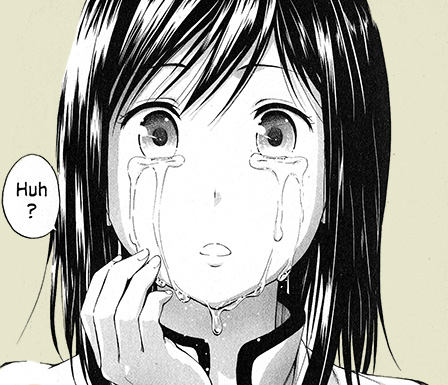 This is basically almost an exact representation of me as I realized how awful this book series actually is.
This is basically almost an exact representation of me as I realized how awful this book series actually is.
I'm not certain which adaptation is more faithful to the source—I have not had the pleasure of reading the original. It's possible (even plausible) that the anime took great liberties with the story as laid out in the novel. Anime tends to do this. It doesn't matter. The anime series stands as one of the great glories of its medium, a mature and indelible treatment of the human condition as written across millennia. The manga, for its part, likewise stands as emblem for its own medium—only as one of the great shames. These books are made repellent by the comparison. It's such a deeply tragic missed opportunity. Due to inept handling, this book that could have been a fascinating mix of speculative fiction, horror, bildungsroman, and political ethics becomes little more than a rambling, childish exercise in pandering to an infantile microdemographic.
This series is so badly done, so repellent, so great a disappointment after having seen the anime adaptation of the same story that I'm going to throw the books away. I don't throw books away if I don't like them. I give them to people who might like them, donate them to Friends of the Library, whatever. Not these. I want no one anywhere ever to read these.
In the supplemental material for the second volume, the publishers run a minicomic giving readers a bit of a behind-the-scenes glance into the adaptations of the novel. The manga's team visits the studio producing the anime and eventually the novelist Yusuke Kishi makes an appearance, praising the anime and cast. He then takes a moment to earnestly plead with the manga creators: "Please make the manga good enough to beat the novel and anime! I have high hopes!" It's as if those responsible for producing the manga listened attentively to the admonition and then beat the author savagely, tied him up, and pissed all over his dreams.
Note: I've essentially stopped reviewing books I don't at least sort of like. There's enough negativity on the internet to sustain worldwide bile for another seven hundred years and I've stopped feeling the need to participate in that. The only reason I'm reviewing this From the New World is I want the opportunity to point out how wonderful the anime is and drive people toward it. You can view it on Crunchyroll. It is worth your time and consideration.
Good Ok Bad features reviews of comics, graphic novels, manga, et cetera using a rare and auspicious three-star rating system. Point systems are notoriously fiddly, so here it's been pared down to three simple possibilities:
3 Stars = Good
2 Stars = Ok
1 Star = Bad
I am Seth T. Hahne and these are my reviews.
Browse Reviews By
Other Features
- Best Books of the Year:
- Top 50 of 2024
- Top 50 of 2023
- Top 100 of 2020-22
- Top 75 of 2019
- Top 50 of 2018
- Top 75 of 2017
- Top 75 of 2016
- Top 75 of 2015
- Top 75 of 2014
- Top 35 of 2013
- Top 25 of 2012
- Top 10 of 2011
- Popular Sections:
- All-Time Top 500
- All the Boardgames I've Played
- All the Anime Series I've Seen
- All the Animated Films I've Seen
- Top 75 by Female Creators
- Kids Recommendations
- What I Read: A Reading Log
- Other Features:
- Bookclub Study Guides


